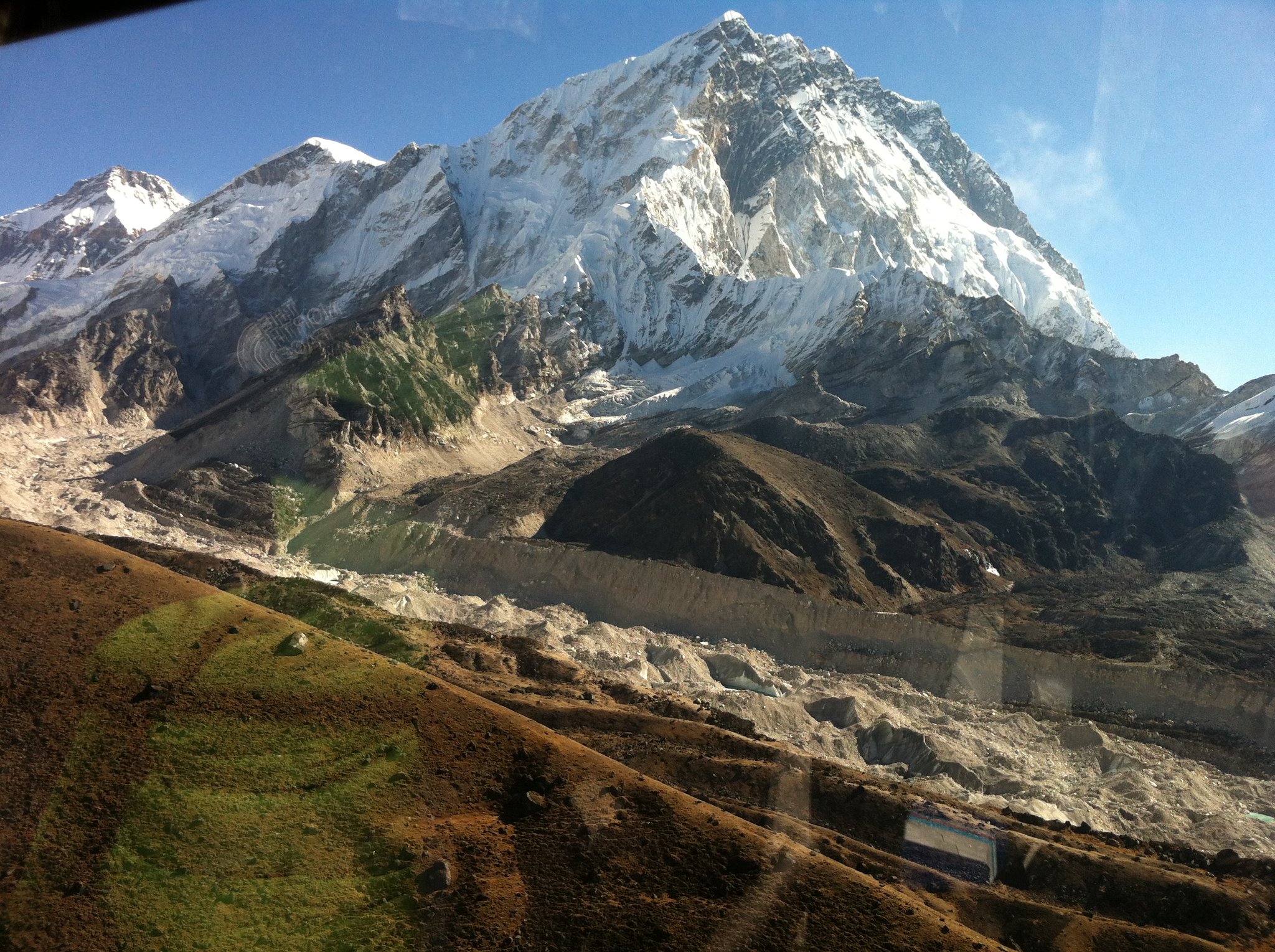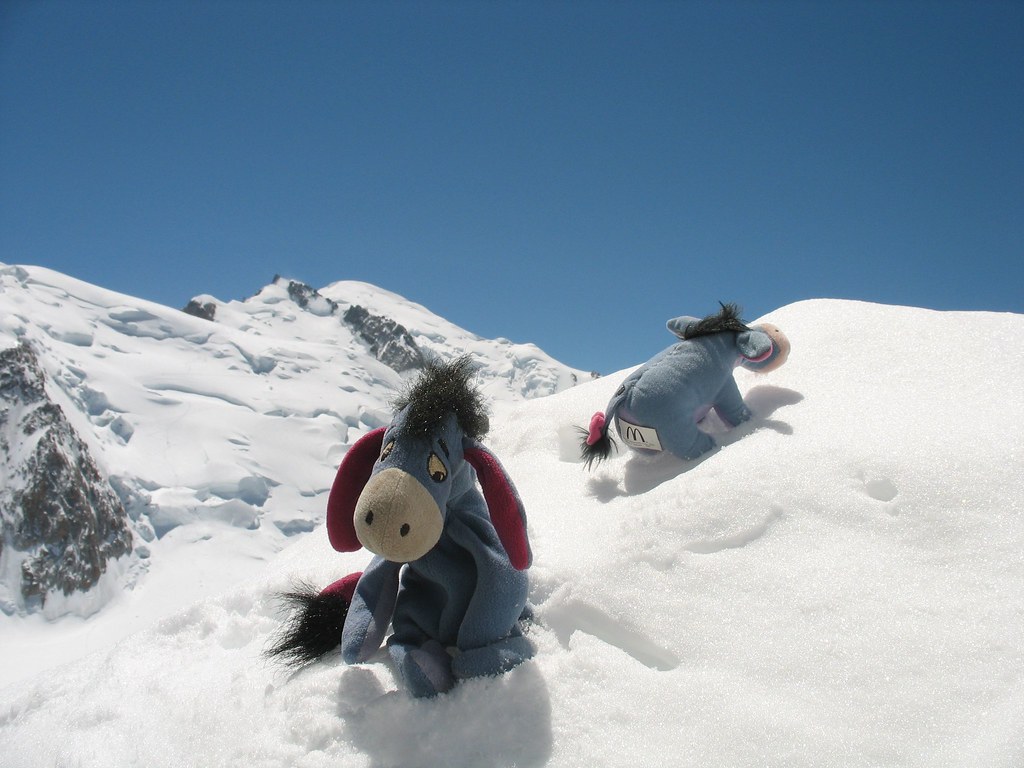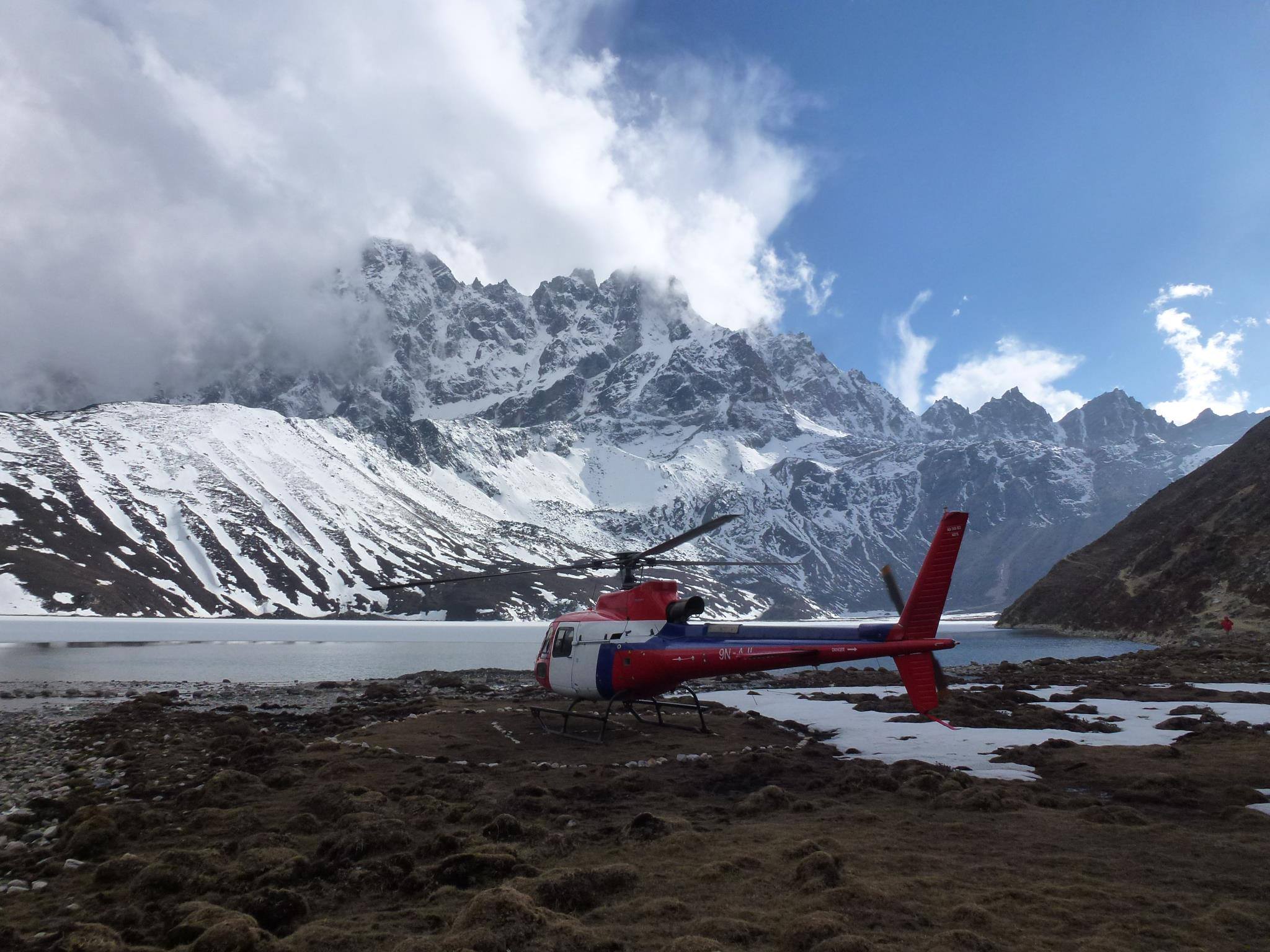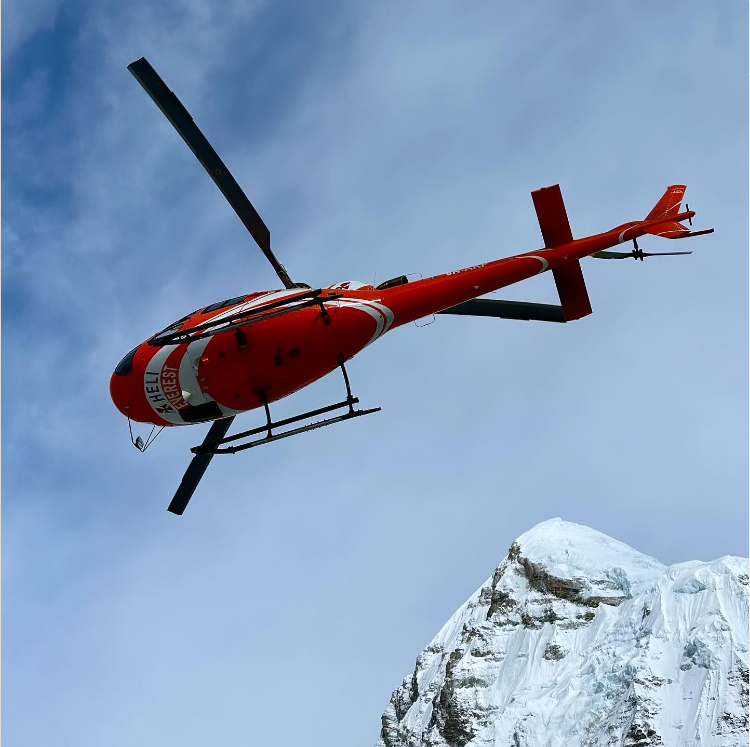Imagine yourself soaring high above the clouds, gazing down upon the breathtaking landscapes of the Himalayas. It sounds like an adventure of a lifetime, doesn’t it? That’s exactly what an Everest Base Camp helicopter tour promises. However, as thrilling as this experience can be, it also comes with its own set of challenges, the main one being altitude sickness. This condition, also known as Acute Mountain Sickness (AMS), can significantly hinder your experience if not managed properly. But don't let that discourage you! With proper preparation and precautions, you can minimize the risks and fully enjoy your high-flying adventure. In this guide, we’ll share some essential tips to prevent altitude sickness and ensure your Everest Base Camp helicopter tour is nothing short of spectacular.
- Understanding Altitude Sickness during Everest Base Camp Helicopter Tour
- Everest Base Camp Helicopter Tour Experience
- Prevention Tips for Altitude Sickness for EBC Helicopter Tour
- Proper Acclimatization Strategies
- Hydration and Nutrition Recommendations Before EBC Helicopter Tour
- Availability of Oxygen Support during Everest Base Camp Helicopter Tour
- Managing Altitude Sickness Symptoms During Everest Helicopter Tour
- Medication Options
- Rest and Recovery Techniques for Altitude sickness during whole Helicopter Tour to Everest Base
- Conclusion
Understanding Altitude Sickness during Everest Base Camp Helicopter Tour
Altitude sickness is a condition that can affect mountain climbers, hikers, skiers, or travelers at high altitudes, typically above 8,000 feet (about 2,400 meters). Understanding this condition is crucial, especially if you're planning an adventurous trip like the Everest Base Helicopter Tour.
Causes of Altitude Sickness
Altitude sickness, also known as acute mountain sickness (AMS), happens when you cannot get enough oxygen from the air at high elevations. This situation arises because the air pressure is lower at higher altitudes, making oxygen less available. Your body can adjust to these conditions, a process known as acclimatization, which varies from person to person based on factors like genetics, physical condition, and altitude experience. However, if you ascend too rapidly, your body doesn't have sufficient time to adapt, leading to symptoms of altitude sickness.
Symptoms of Altitude Sickness
The symptoms of altitude sickness can range from mild to severe and can affect anyone, regardless of fitness level or experience with high elevations. Here are some common symptoms:
- Headaches: are often the first sign, resembling a severe migraine, and not relieved by standard painkillers.
- Nausea and vomiting: are common symptoms that add to the discomfort of altitude sickness.
- Dizziness: Feeling light-headed or dizzy is a warning sign that your body is not adjusting well to the altitude.
- Fatigue and loss of energy: The body works harder at high altitudes, which can lead to exhaustion.
- Shortness of breath: Even when resting, you might find it difficult to breathe.
- Difficulty sleeping: You may experience disrupted sleep or insomnia due to the effect of altitude on your body.
- Loss of appetite: Altitude can also affect your eating habits, leading to loss of appetite.
It's essential to monitor these symptoms closely. Mild symptoms can usually be managed with rest and by avoiding further ascent until they improve. However, in case of severe symptoms or if there's no improvement, descending to a lower altitude is crucial for recovery.
Everest Base Camp Helicopter Tour Experience

Embarking on Helicopter Tour to Everest Base Camp is an exhilarating experience that offers unforgettable views and memories. While it's an adventure of a lifetime, understanding the risks associated with high altitude is crucial for a safe and enjoyable journey.
Excitement of the Journey
The Heli Tour to Everest Base Camp is nothing short of thrilling. It begins with the anticipation of flying over some of the most spectacular landscapes on Earth. As you ascend, the verdant valleys and gushing rivers of the lower regions give way to the stark, majestic beauty of the Himalayas. The sight of towering peaks, including Everest itself, is awe-inspiring.
One of the unique aspects of this Everest Base Heli tour is the opportunity to land near Base Camp, stepping out onto the terrain where climbers begin their ascent to the summit. The panoramic views, the feeling of being on top of the world, and the sheer magnificence of nature's creations are unparalleled. For many, this journey is a dream come true a moment where you're literally on a high, not just from the altitude but from the euphoria of the experience.
Risks Associated with High Altitude during EBC Helicopter Tour
While the Everest Base Camp Helicopter Tour with landing provides an extraordinary adventure, the quick ascent to high altitude poses risks, including altitude sickness. Unlike trekkers, who usually take days to reach Base Camp, giving their bodies more time to acclimate, helicopter passengers ascend much more rapidly. This rapid transition can increase the risk of experiencing symptoms of altitude sickness.
Here are some tips to mitigate these risks:
- Stay Hydrated: Dehydration can exacerbate symptoms of altitude sickness.
- Drink plenty of water before and during your flight.
- Avoid alcohol and sleeping pills: These can interfere with breathing and worsen symptoms of altitude sickness.
- Listen to Your Body: If you start feeling unwell, it's important to communicate with your pilot and guide. In many cases, simply descending a few hundred meters can alleviate symptoms.
- Oxygen Supplement: Some helicopter services provide supplemental oxygen during flights. It's wise to use it to help your body adjust better to the high altitude.
- Acclimatization Flights: If available, consider tours that include a short stop at a moderate altitude before reaching Base Camp. This can help your body begin adjusting to the elevation.
Despite the risks, proper preparation and awareness can help ensure that your Everest Camp Helicopter Tour is a safe and exhilarating experience. Remember, altitude sickness can affect anyone, regardless of age, fitness, or prior experiences with high altitudes. Therefore, being informed and taking preventive measures is key to fully enjoying the beauty and thrill of reaching one of the highest points on Earth from the comfort of a helicopter.
Prevention Tips for Altitude Sickness for EBC Helicopter Tour

Exploring on an Everest Base Camp helicopter trip is a thrilling experience that promises breathtaking views of the world’s highest peaks. However, venturing to such high altitudes brings the challenge of altitude sickness, a condition worthy of attention and preparation. Fear not! With the right prevention strategies, you can reduce the likelihood of falling victim to this ailment and ensure your adventure remains memorable for all the right reasons.
Proper Acclimatization Strategies
Acclimatization is your best friend when it comes to preventing altitude sickness. Your body needs time to adjust to the lower oxygen levels found at high altitudes. Although a helicopter tour rapidly ascends, making traditional acclimatization difficult, you can prepare your body in the days leading up to your trip.
- Start by spending a few days at a moderately high elevation, if possible.
- Engage in light-to-moderate activities to stimulate your body’s adaptation processes.
- Sleeping at high altitudes before your tour can also be beneficial, as it trains your body to manage lower oxygen levels during rest, a crucial adjustment period.
- By gradually introducing your body to altitude changes, you enhance your ability to cope with the sudden ascent during the helicopter tour.
Hydration and Nutrition Recommendations Before EBC Helicopter Tour
Another crucial aspect of preventing altitude sickness lies in proper hydration and nutrition. The mantra here is simple: Drink plenty of water and eat well-balanced meals.
- Aim to drink at least 3 to 4 liters of water daily, starting several days before your flight. Dehydration can mimic or exacerbate the symptoms of altitude sickness.
- Incorporate carbohydrates into your meals, as they are easier to digest and provide energy more quickly at high altitudes.
- Avoid substances that can lead to dehydration, such as caffeine and alcohol, especially right before your trip.
- Maintaining a consistent intake of water and balanced meals will support your body's overall ability to adapt to the stresses of high-altitude conditions.
Availability of Oxygen Support during Everest Base Camp Helicopter Tour
When booking your Everest Base Camp helicopter tour, inquire about the availability of supplemental oxygen. Many helicopters are equipped to provide oxygen support for passengers experiencing difficulties with the altitude. Knowing that this safety measure is available can provide peace of mind.
- Even if you feel fine, it’s good to be aware of how to use the oxygen support if the need arises suddenly.
- Don't hesitate to use it if you begin feeling the effects of altitude; it’s there for your safety and comfort.
Managing Altitude Sickness Symptoms During Everest Helicopter Tour
Despite all your preventative measures, altitude sickness can still sneak up on you. Recognizing the symptoms early and knowing how to respond can significantly mitigate the impact and help prevent more severe health issues.
Recognizing Early Warning Signs
Early detection of altitude sickness is vital for a quick and effective response. Symptoms often resemble a hangover and can include:
- Headache
- Nausea
- Dizziness
- Fatigue
- Shortness of breath
- Loss of appetite
At the first sign of any of these symptoms, it’s crucial to take them seriously and act. The sooner you acknowledge and address these early warning signs, the better your chances of quick recovery.
Medication Options
If you're prone to altitude sickness or just want to be prepared, consider consulting with a healthcare provider about medication options. Medications such as acetazolamide (Diamox) can be taken as a preventative measure or to treat symptoms. However, they require a prescription and should be discussed with a doctor to ensure they're appropriate for your situation.
- Ibuprofen can help manage headaches and other minor symptoms.
- Anti-nausea medications can be useful for managing queasiness at high altitudes.
Rest and Recovery Techniques for Altitude sickness during whole Helicopter Tour to Everest Base
Sometimes, the best medicine is rest. If symptoms of altitude sickness appear, it's essential to:
- Stop ascending immediately. If possible, descend to a lower altitude until symptoms improve.
- Rest and stay hydrated. Avoid exertion and drink water to help your body recover.
- Use supplemental oxygen if it's available and recommended.
Most cases of mild altitude sickness are manageable with these steps. However, if symptoms persist or worsen, seeking medical attention is crucial. Remember, altitude sickness can progress to more severe forms, like high-altitude pulmonary edema (HAPE) or high-altitude cerebral edema (HACE), both of which require immediate medical intervention.
Venturing to high altitudes is inherently risky, but a little preparation and knowledge can go a long way in ensuring your Everest Base Camp helicopter journey is safe and enjoyable. By adhering to these guidelines for preventing and managing altitude sickness, you can focus on the awe-inspiring beauty of the Himalayas while keeping health risks at bay.
Conclusion

Embarking on an Everest Base Camp Helicopter Tour is an adventure of a lifetime, presenting you with breathtaking views of the world's highest peaks. However, the joy of witnessing such beauty can be marred by the daunting prospect of altitude sickness. Understanding the potential risks and taking proactive steps to mitigate them ensures not only your safety but also maximizes your enjoyment of this spectacular journey. By staying hydrated, acclimatizing properly, adopting a gradual ascent, and considering preventative medication under professional guidance, you're setting the stage for a memorable and positive experience.
It's essential to listen to your body and communicate openly with your pilots about how you're feeling. Remember, altitude sickness does not discriminate by age, fitness level, or previous high-altitude experience. Taking it seriously and preparing accordingly will empower you to fully embrace the awe-inspiring beauty of the Everest region. So, pack your bags, prepare wisely, and soar high above the clouds to witness the majestic Himalayas safely and joyfully.
Your adventure awaits!








